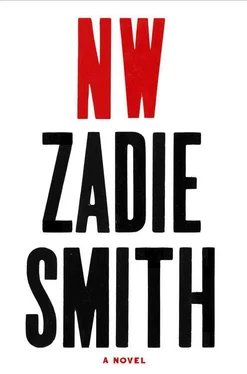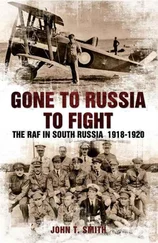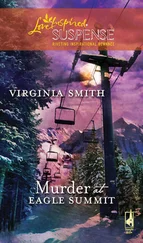“Money. Phone. Now.”
They were either side of him. Hoods up but perfectly visible. Same two from the train. Not much taller than he was. Not much wider, either. It had just turned six o’clock.
“NOW.”
He felt himself being jostled, manhandled. He looked up at their faces. The talkative one, the one doing all the cussing, was truly a kid; the other, the silent one, was closer to Felix’s own age, and too old for such foolishness. He had ashy hands, like Felix’s own, and the same dull sheen to his face. Along his cheek a scar ran. He was local somehow, familiar. Felix tried turning away but they swung him back round. He swore at them at length, creatively, and looked to his right: four houses down the tall girl put a key to a lock and went inside.
“Listen, I ain’t giving you nothing. Nothing!”
He found himself on the pavement. As he got back up on his knees he heard one of them say, “Big man on the train. Ain’t the big man now.” And instead of fear, a feeling of pity came over him; he remembered when being the big man was all that mattered. He reached into his pockets. They could have his phone. They could have the lone twenty in his pocket if it came to that. He’d been mugged many times and knew the drill. When he was younger they might have wounded his ego; now the old fury and humiliation were gone — they could have it all. Everything he cared about was elsewhere. He tried to laugh at them as he handed over his meager valuables: “Should have caught me two hours ago, blud. Two hours ago I was loaded.” The kid gave him a dead-eyed look, face set in a violent pout. It was a necessary mask, without which he could not do what he was doing. “And the stones,” said the kid. Felix touched his ears. Treasured zirconias, a present from Grace.
“You’re dreamin’,” he said.
He turned once more toward the street. A breeze passed over the three of them, filling their hoods and sending a cloud of sycamore leaves spinning to the pavement. A firm punch came to his side. Punch? The pain sliced to the left, deep and down. Warm liquid reversed up his throat. Over his lips. Yet it couldn’t be oblivion as long as he could name it, and with this in mind he said aloud what had been done to him, what was being done to him, he tried to say it, he said nothing. Grace! Down Willesden Lane a bus came rumbling; at the same moment in which Felix glimpsed the handle and the blade he saw the 98 reopen its doors to accept the last soul in sight — a young girl in a yellow summer dress. She ran with her ticket held high above her head like the proof of something, got there just in time, cried out “Thank you!” and let the doors fold neatly behind her.
1. These red pigtails
There had been an event. To speak of it required the pluperfect. Keisha Blake and Leah Hanwell, the protagonists in this event, were four-year-old children. The outdoor pool — really a shallow trough in the park, one foot at its deepest end — had been full of kids, “splashing all ways, causing madness.” There was no lifeguard at the time of the event, and parents were left to keep an eye as best they could. “They had a guard up the hill, in Hampstead, for them. Nothing for us.” This was an interesting detail. Keisha — now ten years old and curious about the tensions between grown people — tried to get at its meaning. “Stop gazing. Lift your foot,” said her mother. They sat on a bench in a shoe shop on the Kilburn High Road getting measured for a pair of dull brown shoes with a t-strap that did not express any of the joy that must surely exist in the world, despite everything. “I’ve got Cheryl acting wild in one corner, I got Jayden in my arms bawling, and I’m trying to see where you are, trying to keep it all together…” It was in this ellipsis that the event had occurred: a child nearly drowned. Yet the significance of the event lay elsewhere. “You rose up with these red pigtails in your hand. You dragged her up. You were the only one saw she was in trouble.” After the event, the mother of the child, an Irish woman, thanked Marcia Blake many times, and this in itself was a kind of event. “I knew Pauline to look at but not to speak to. She was a bit snooty with me back then.” Keisha could neither contradict nor verify this account — she had no memory of it. However, the foreshadowing could be considered suspicious. Her own celebrated will and foresight so firmly established, and Cheryl already wild and unreliable. Also, Jayden could not have been born at the time of the event, being five years younger than Keisha. “Keep still now,” murmured Marcia, pushing the steel bar down to meet her daughter’s toes.
2. Kiwi fruit
In the lethal quiet of the Hanwell flat a highlight was snack-time. It was taken seriously by Mrs. Hanwell, who kept a trolley for the purpose. Three tiered with swiveling wheels of brass. It was too low to the ground to be pushed without a person bending absurdly as they did so. “There’s no point bringing it all out for two, but when there’s three I like to get it out.” Keisha Blake sat cross-legged in front of the television with her good friend Leah Hanwell, with whom she had bonded over a dramatic event. She turned to monitor the trolley’s progress: food delighted Keisha Blake and she looked forward to it above all things. Blocking the girls’ view, Mrs. Hanwell now asked the television a question: “Who are all these dangerous-looking fellas in a van?” Leah turned up the volume. She pointed to the TV, at Hannibal’s gleaming white hair, and then at her mother, in reality. “That hair makes you look well old,” she said. Keisha tried to imagine saying something of this kind to her own mother. Silently she mourned the loss of the biscuit plate and whatever novelty was contained in those furry brown eggs. She put her feet together ready to stand up and go home. But Mrs. Hanwell did not start yelling or hitting. She only touched her bowl of hair and sighed. “It went this color when I had you.”
3. Holes
The stick jammed the doors of the lift — this had been the whole point of the exercise. An alarm sounded. All three children went screaming and laughing down the stairs, up the incline, and over the boundary wall to sit on the pavement on the other side. Nathan Bogle pulled his knees right up to his chin and put his arms around them. “How many holes you got?” he asked. Both girls were silent. “What?” said Leah, finally. “Down there”—he jabbed a finger at Keisha’s crotch to demonstrate—“How many? You don’t even know.” Keisha dared lift her eyes from the road to her friend. Leah was hopelessly red in the face. “Everybody knows that,” countered Keisha Blake, trying to muster the further boldness she sensed was required. “You should fuck off and find out.” “You don’t even know,” Nathan concluded, and Leah stood up suddenly and kicked him on his ankle and shouted, “But she does though!” and took Keisha’s hand and ran back to the flat holding hands the whole way because they were best friends bonded for life by a dramatic event and everyone in Caldwell best know about it.
4. Uncertainty
They found Cheryl watching television, plaiting her own hair, from the back of her head forwards. Keisha Blake challenged her elder sister to say how many holes there were. It was not good to have Cheryl laugh at you. It was a loud, relentless laugh, fueled by the other person’s mortification.
5. Philosophical disagreement
Keisha Blake was eager to replicate some of the conditions she had seen at the Hanwells’. Cup, teabag, then water, then — only then — milk. On a tea-tray. Her mother was of the opinion that anyone who is in another person’s flat as often as Leah Hanwell was in the Blakes’ forgoes the right to be a guest and should simply be treated as a member of the family, with all the dispensation and latitude that suggests. Cheryl took a third position: “She’s always hanging round here. Don’t she like her own place? What’s she up in my makeup all the time for? Who does she think she is?”
Читать дальше











